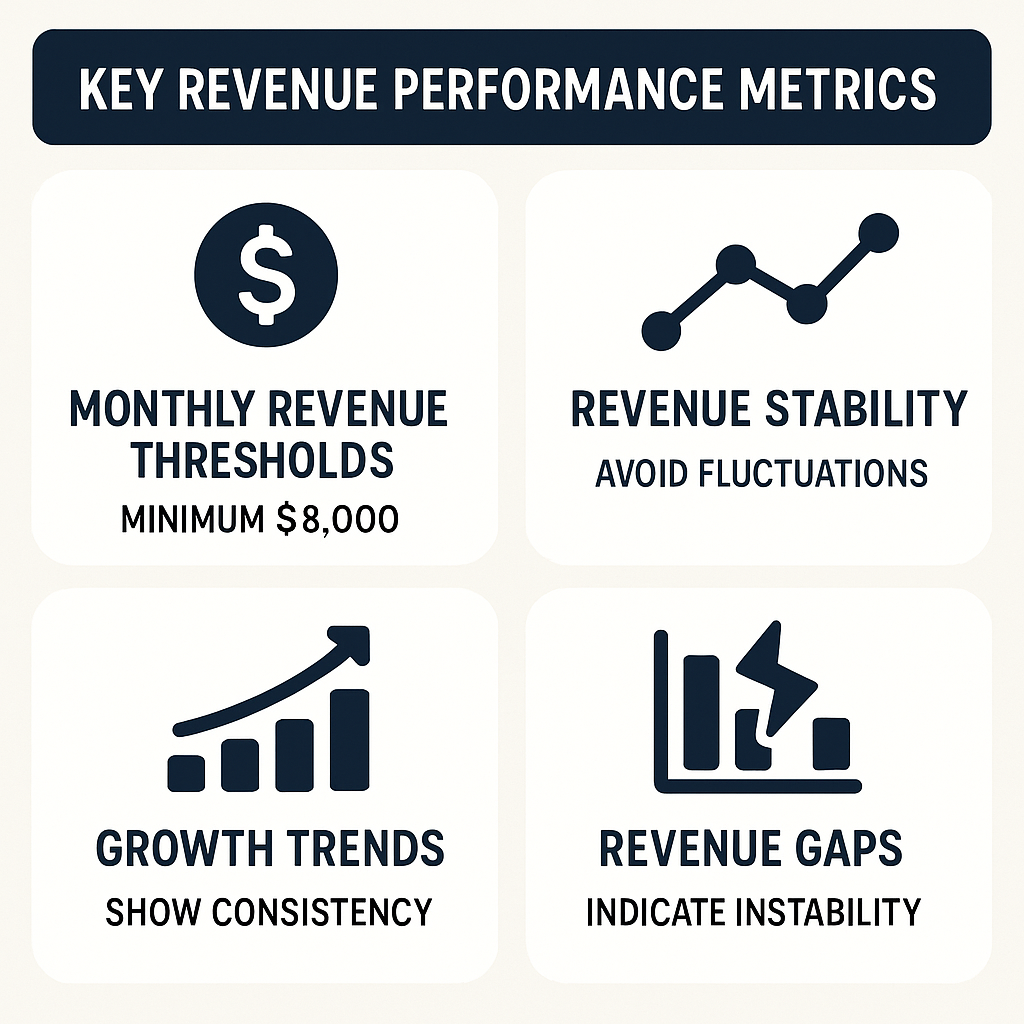Small business owners often struggle with traditional financing options that require extensive collateral or perfect credit scores. Revenue-based financing has emerged as a flexible alternative, but improving eligibility for revenue-based financing requires strategic preparation and understanding of what lenders actually seek. This funding model allows businesses to access capital based on their revenue performance rather than assets or credit history alone.
The key to securing this type of financing lies in demonstrating consistent sales patterns, maintaining proper revenue documentation, and meeting specific operational requirements. Many merchants miss out on opportunities simply because they don't understand how to present their business in the most favorable light to potential lenders.
Essential Documentation Requirements
Proper revenue documentation forms the foundation of improving eligibility for revenue-based financing. Lenders need clear evidence of your business's financial performance to assess risk and determine funding amounts.
- Maintain organized digital statements showing at least six months of consistent revenue streams
- Prepare clean business bank account records that clearly demonstrate monthly cash flow patterns
- Compile monthly revenue reports that highlight growth trends and seasonal variations
- Document all revenue sources to provide a comprehensive view of your business income
Operational History Standards
Meeting minimum operational requirements is crucial for approval optimization. Most lenders have specific criteria regarding business age and location that directly impact your eligibility.
- Ensure your business has operated for at least six months with verifiable activity
- Maintain a U.S.-based business registration and operational address
- Establish a legitimate business bank account separate from personal finances
- Document consistent business operations through regular transactions and customer interactions
Revenue Performance Benchmarks

Consistent sales history plays a vital role in demonstrating your business's ability to generate reliable income for repayment purposes.
- Achieve minimum monthly revenue thresholds, typically around $8,000 per month
- Maintain steady revenue patterns without significant month-to-month fluctuations
- Show growth trends or stability over the required operational period
- Avoid large gaps in revenue that might indicate business instability
Strategic Application Timing
The timing of your application can significantly impact your approval chances and the terms you might receive from lenders.
- Apply during periods of strong revenue performance rather than seasonal low points
- Wait until you have at least six months of solid operational history before submitting applications
- Consider market conditions and your industry's typical performance cycles
- Allow sufficient time for documentation gathering and application preparation
Financial Preparation Steps
Proper financial preparation involves organizing your business finances in a way that clearly demonstrates your ability to handle additional funding responsibly.
- Clean up your business bank statements by removing any irregular or unexplained transactions
- Establish clear separation between business and personal expenses
- Organize tax returns and financial statements that support your revenue claims
- Prepare explanations for any seasonal variations or temporary revenue dips
- Calculate your debt-to-income ratio to ensure you can handle additional financing obligations
Credit and Risk Assessment
While revenue-based financing may be more flexible than traditional options, lenders still consider creditworthiness and overall business risk when making decisions.
- Review your personal and business credit reports for accuracy and address any errors
- Work on improving credit scores if they fall below lender preferences
- Gather explanations for any past credit issues or business challenges
- Demonstrate how your business model generates predictable revenue streams
Moving Forward
Successfully improving eligibility for revenue-based financing requires patience, preparation, and strategic thinking. The effort invested in organizing your financial documentation and ensuring your business meets operational standards will pay dividends not only in securing funding but also in better understanding your business's financial health. Remember that this type of financing offers flexibility that traditional options might not provide, making it worth the preparation time for many small business owners.
Revenue-based financing represents a valuable opportunity for businesses with consistent sales history but limited collateral options. By focusing on proper revenue documentation, meeting operational requirements, and presenting your business professionally, you can significantly improve your chances of approval. The key lies in understanding what lenders seek and positioning your business to meet those expectations.
Take the time to prepare thoroughly, organize your financial records, and ensure your business meets the basic eligibility criteria before applying. This preparation will not only increase your approval odds but may also help you secure more favorable terms for your business growth needs.

.png)






